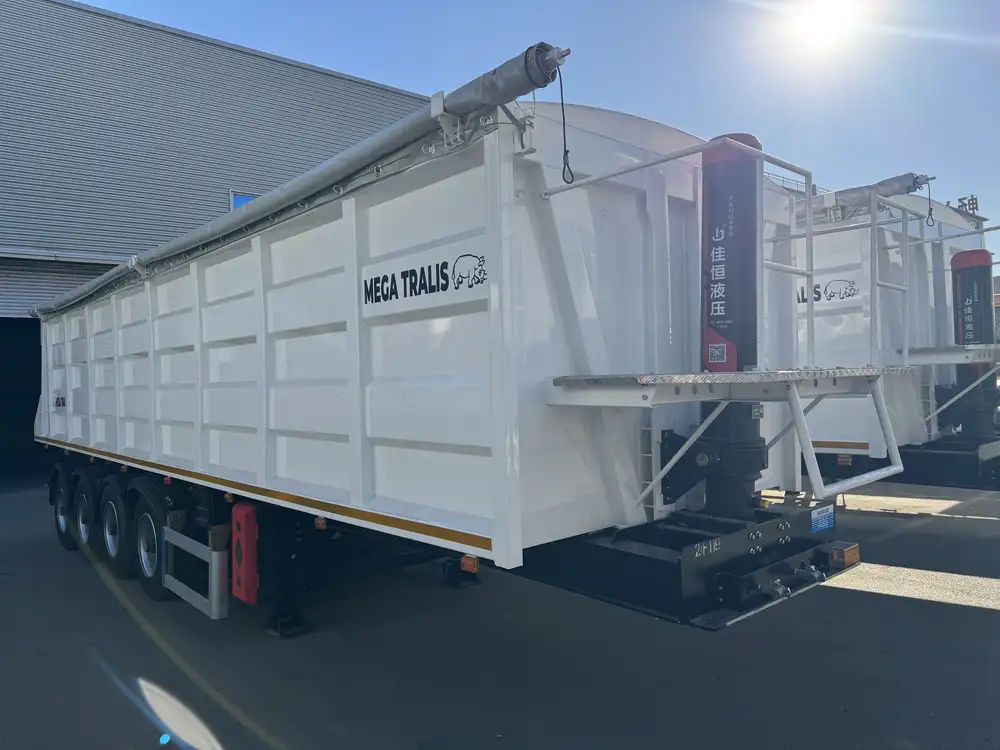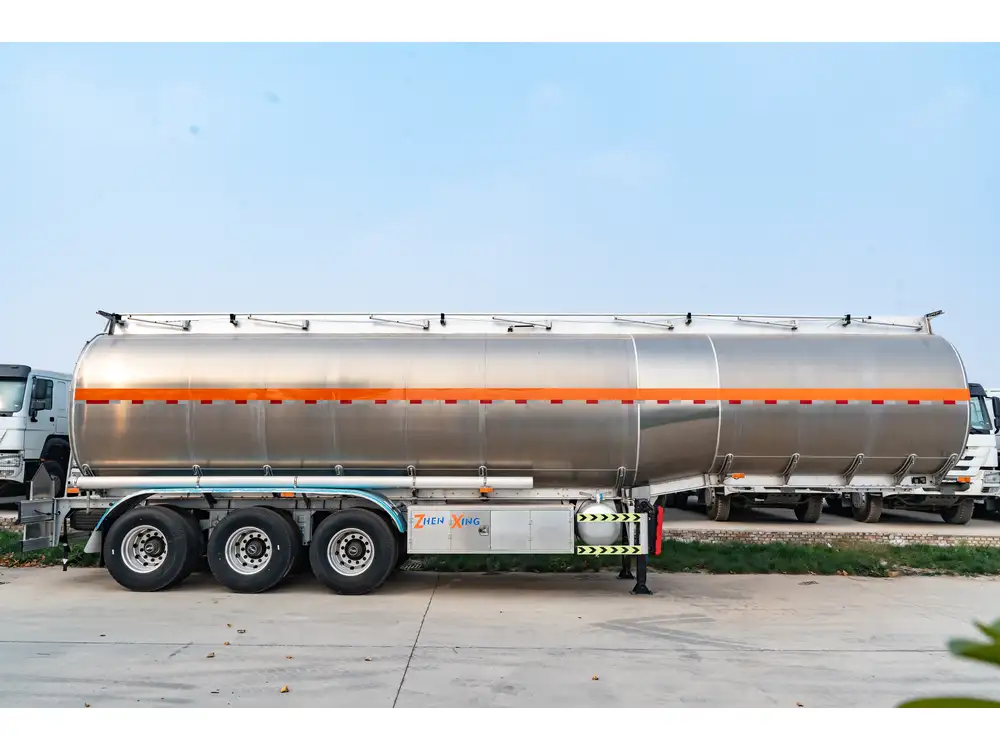Flatbed trailers are an essential asset within the logistics and transportation industry, frequently utilized for moving oversized or heavy loads that aren’t compatible with traditional enclosed trailers. With increasing demand, understanding how much it costs to rent a flatbed trailer is critical for businesses, industries, and individual contractors who need to manage expenditures effectively while ensuring efficient transport solutions.
Factors Influencing Flatbed Trailer Rental Costs
Determining the cost to rent a flatbed trailer can vary significantly based on numerous factors. The following are the primary considerations that can influence rental prices:
Trailer Size and Specifications
- Flatbed trailers come in various sizes, typically ranging from 20 to 53 feet. The length and weight capacity significantly impact rental rates.
- Specialized features (e.g., additional axles, multi-purpose configurations) may incur additional costs.
Rental Duration
- Short-term rentals (single day) usually have a higher daily rate compared to long-term contracts, which often offer discounted rates for extended use.
- Daily, weekly, and monthly rates can vary, with longer commitments typically attracting lower overall costs.
Geographic Location
- The rental market’s dynamics in urban versus rural settings can influence pricing. Major cities may have more competitive rates, while remote areas might see higher rentals due to reduced supply.
- Transportation logistics for the provider can also add to the base cost, especially in less accessible regions.
Seasonality
- Seasonal demand surges, particularly in industries like construction, agriculture, and retail, can lead to increased rental charges during peak periods.
- Understanding local market trends and projected demands can help in timing the rental to secure the best pricing.
Insurance and Additional Fees
- Rental companies often require proof of insurance which can result in an upfront cost or increased daily rates if insurance is provided through the rental company.
- Additional charges could include mileage fees, taxes, environmental surcharges, and maintenance fees, all of which should be clearly understood before committing to a rental agreement.
Condition and Type of Trailer
- Newer and well-maintained trailers are typically rented at a premium, while older models may be more economical but could risk reliability.
Provider Reputation and Customer Service
- Established companies with good customer reviews may charge higher rates due to their reliability and quality service.
- Conversely, less reputable providers may offer lower prices but come with a risk of inadequate service or poor equipment condition.
Average Rental Costs for Flatbed Trailers
While there is significant variability in pricing, a general breakdown of the average costs to rent a flatbed trailer is as follows:
| Duration | Average Cost Range | Notes |
|---|---|---|
| Daily | $100 – $250 | Basis for short-term projects. |
| Weekly | $400 – $1,200 | Volume discounts apply. |
| Monthly | $1,200 – $3,000 | Most cost-effective for long-term usage. |

Comparing Flatbed Trailers and Alternatives
When evaluating the cost-effectiveness of flatbed trailers, it’s prudent to compare them with other trailer types:
1. Enclosed Trailers
- Usage: Ideal for sensitive cargo but limits loading options.
- Cost: Generally higher due to additional materials and security features.
- Consideration: Enclosed trailers provide greater protection but can be less flexible for large, heavy loads.
2. Lowboy Trailers
- Usage: Primarily used for transporting heavy equipment.
- Cost: Rates can be comparable or higher than flatbeds due to specialized construction.
- Consideration: Best suited for construction machinery but may have limited availability.

3. Step Deck Trailers
- Usage: Designed for taller loads that require a lower deck height.
- Cost: Similar to flatbed trailers.
- Consideration: Favorable for loads that exceed the height restrictions of standard flatbeds.
4. Gooseneck Trailers
- Usage: Excellent for heavier loads but requires a specialized towing vehicle.
- Cost: Generally lower than flatbed rates, but equipment compatibility is required.
- Consideration: Provides greater stability for shrink-wrapped loads.
Ensuring Cost-Effectiveness in Trailer Rentals
To ensure a cost-effective solution when renting flatbed trailers, consider the following strategies:
Plan Ahead
- Anticipating your requirements well in advance allows you to explore various rental options and get the best possible deals.
Negotiate Rates
- Rental companies often have flexibility in pricing, particularly for longer rental periods or repeat customers. Don’t hesitate to inquire about discounts.
Read the Fine Print
- Thoroughly review rental agreements and ensure transparency regarding all costs, including fees linked to mileage, insurance, and maintenance.
Utilize Online Tools
- Leverage comparison platforms for rental prices across different companies to confirm you are securing the best deal.
Fleet Maintenance
- Regular maintenance of your owned trailers or clarifying the condition of rented trailers greatly affects operational cost efficiency over time.

Addressing Common Concerns in Flatbed Trailer Rentals
A. What Licenses Do I Need?
In most jurisdictions, a standard driver’s license suffices to operate a flatbed trailer. However, for heavier loads, a Commercial Driver’s License (CDL) may be required. Always consult local vehicle operation regulations.
B. Is Insurance Necessary?
While some rental companies may provide coverage options, securing your own insurance is usually more economical. Ensure to review the terms of your policy to understand coverage levels while using the rented equipment.

C. Can I Drive Anywhere with a Rental Trailer?
While you can typically transport goods anywhere legally, ensure your planned route complies with local restrictions, particularly regarding size and weight limitations on roads and bridges.
D. What Happens in Case of Damage?
Review the rental agreement terms regarding damage. Accidental damages may incur costs based on assessments made by the rental company. Having comprehensive insurance can usually mitigate unnecessary costs.
Conclusion: Maximizing Your Flatbed Trailer Rental Experience
Navigating the complexities of flatbed trailer rentals simply hinges on understanding all aspects, from cost structures to practical usage concerns. By analyzing your specific requirements against the factors influencing rental prices, you can make informed decisions that benefit your logistical operations.
Emphasizing pre-rental planning, diligent research, and maintaining open lines of communication with rental providers not only enhances your rental experience but ensures optimal efficiency and cost-effectiveness in your transportation endeavors. Embrace these practices not just as rules, but as strategic approaches to edge past the competition in today’s ever-evolving logistics landscape.



